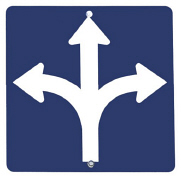I recently followed Steve Pavlina's journey into a polyphasic sleep routine, and have found myself wondering what it'd be like if a majority of the world operated in this way. He just posted his "60 day update" on polyphasic sleep, raving about the productivity gains he's seen.
In case you haven't followed Steve's experiement, he describes polyphasic sleep this way:
"Polyphasic sleep involves taking multiple short sleep periods throughout the day instead of getting all your sleep in one long chunk. A popular form of polyphasic sleep, the Uberman sleep schedule, suggests that you sleep 20-30 minutes six times per day, with equally spaced naps every 4 hours around the clock. This means you're only sleeping 2-3 hours per day."
I have been thinking about some of the implications, were this ever to catch on across the majority of the world:
 Would we change the length of our work days? What about the school day?
Would we change the length of our work days? What about the school day? - Maybe we could spread out the congestion of "rush hour" by having staggered shifts around the clock?
- Would all business begin staying open 24 hours?
- Would this create more jobs, or just create the expectation that we should do more at our current jobs?
- Would we all consume more?
- We'd leave our lights on a lot more (at home and at work)
- We probably wouldn't turn down our heat at night during the winter
- We'd probably drive more
- We'd be awake more and eat more
- Would the hotel and leisure industry change? How?
- When would they play those infomercials on TV?
- Would bars and restaurants change how they operate?
- After all, when would it be "time for breakfast?"
- Would we still get jet lag?
- Would our joints and organs wear out faster because we'd make them work more?
- Would we get sick more or less often?
- Would the murder rate (or crime in general) go up or down?
- If more people were awake for more of the time, and you didn't have everyone away from their neighborhoods at the same time every day, what would that do to crimes of opportunity?
- What about the suicide rate?
- When someone said they needed to "sleep on it" would they really be ready to answer about 15 minutes later?
And I could go on, of course. This is fun and intriguing to think about, but I don't think the majority of the world will every sleep polyphasically. A few years ago, I heard claims that the "Atkins diet" would cause all kind of negative impacts on the market for sugar, potatoes, corn, and all kinds of things like that. Of course, that didn't happen - and I think polyphasic sleep is much less of a phenomenon than Atkins was.
Sometimes, I consider doing the polyphasic sleep thing and have even discussed it with my wife. She is also intrigued by it, especially after hearing some of Steve's stories about how much more he is getting done with all of his extra time.
At the end of it, my wife usually says, "Wait until Steve's done it for about 6 months to see if he has some big problem." And then there's the fact that on cold winter mornings like this morning. As I reached over, hit snooze, retreated back into my warm, comfy bed, I decided I'll just consider it a bit longer.
Read More
 In today's post (part 2) she talks about how easy it has become to discard the blood and sweat that goes into creating things of value. She says, "We measure the value of the things we buy through the price we pay for them. And we forget to be grateful for the labor of others because we already paid them in cash. Money becomes the extent of every exchange, and relationship is forgotten."
In today's post (part 2) she talks about how easy it has become to discard the blood and sweat that goes into creating things of value. She says, "We measure the value of the things we buy through the price we pay for them. And we forget to be grateful for the labor of others because we already paid them in cash. Money becomes the extent of every exchange, and relationship is forgotten." I often say that "Everything happens for a reason," and that it's up to us to find out the reason. Recent reflection on this topic has caused me to alter this philosophy just a bit.
I often say that "Everything happens for a reason," and that it's up to us to find out the reason. Recent reflection on this topic has caused me to alter this philosophy just a bit.